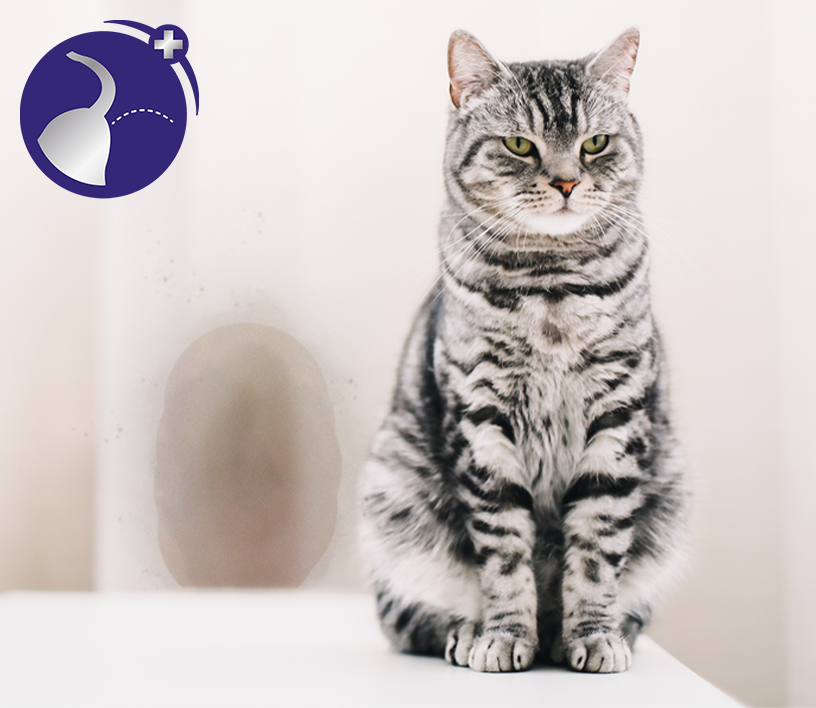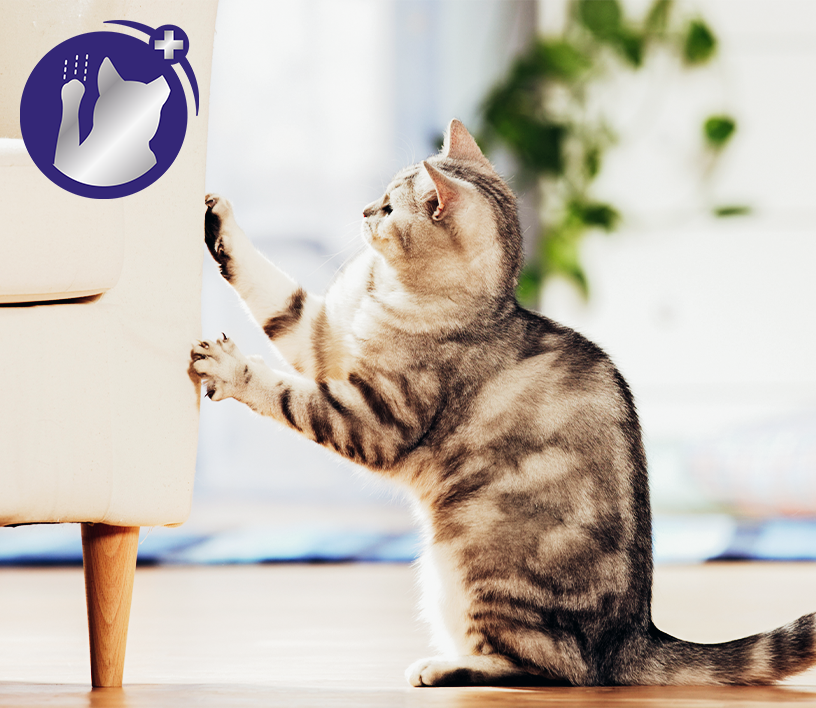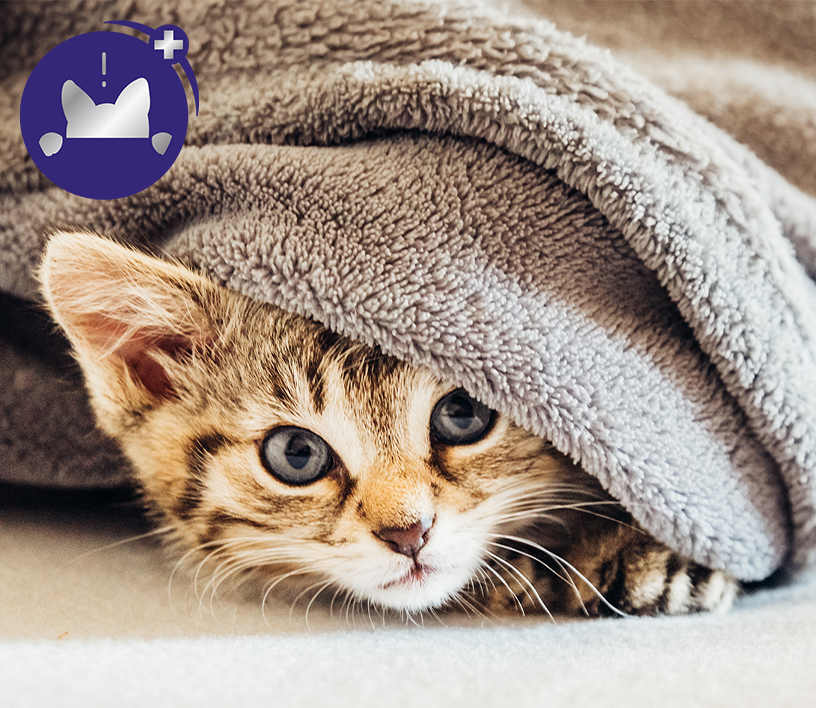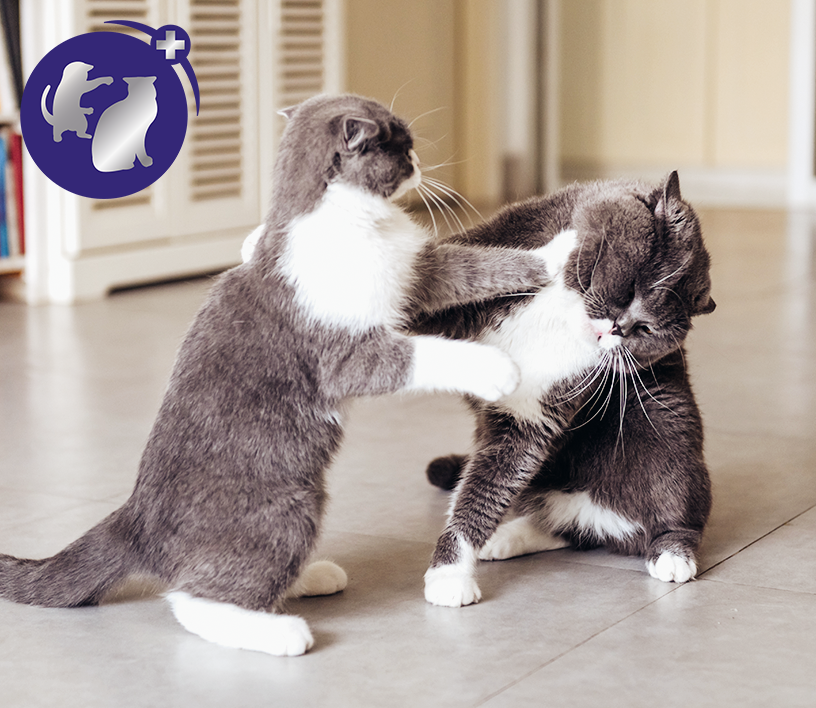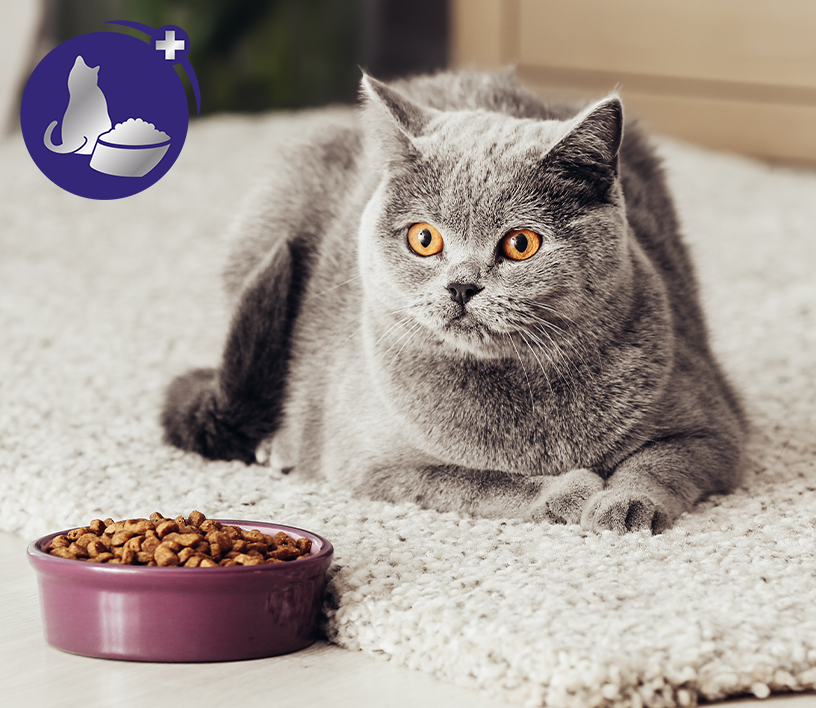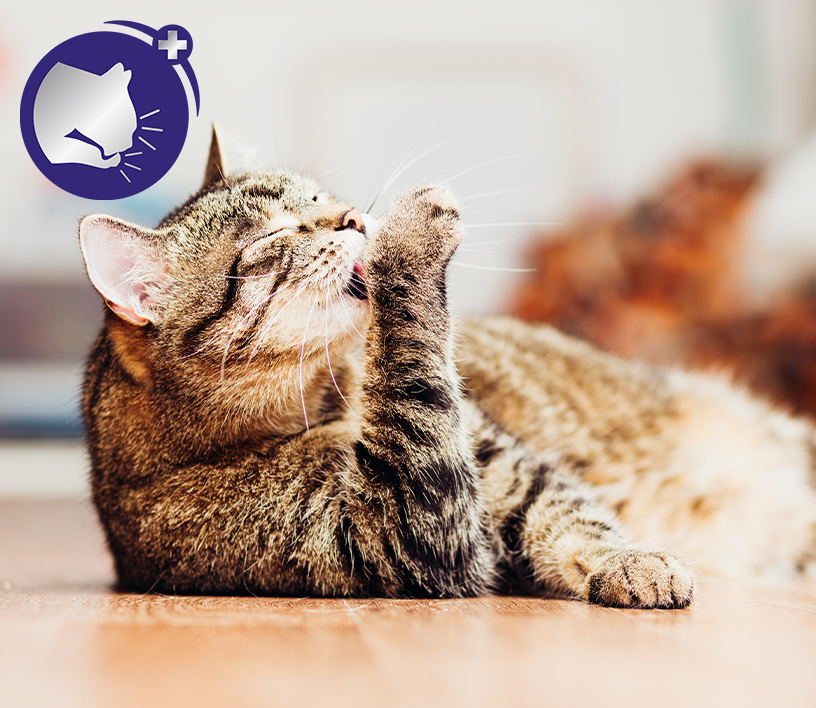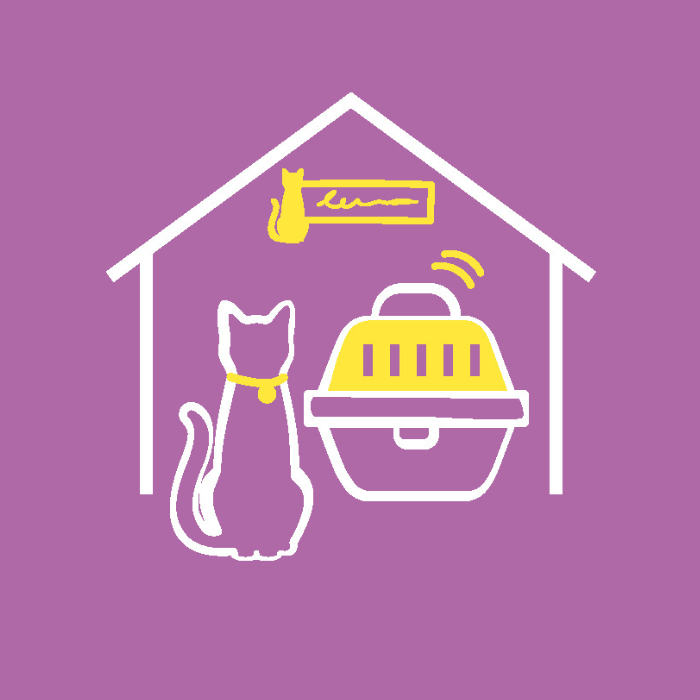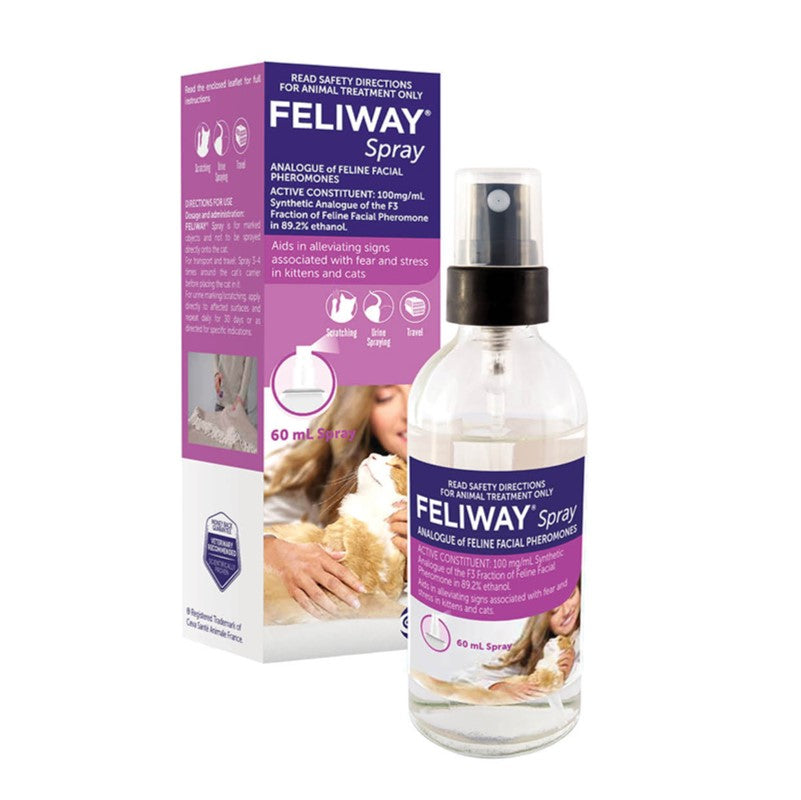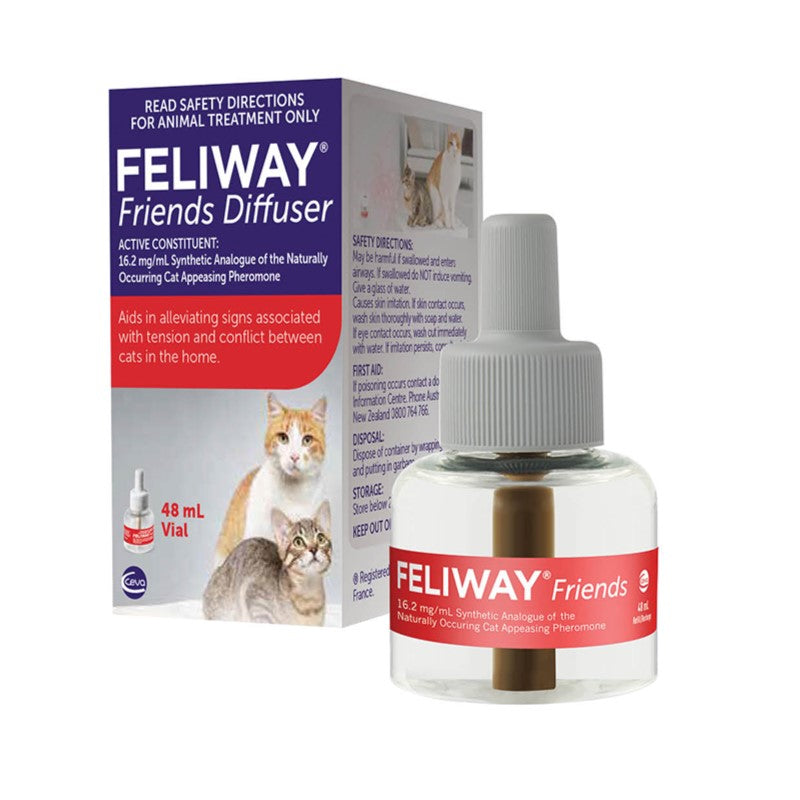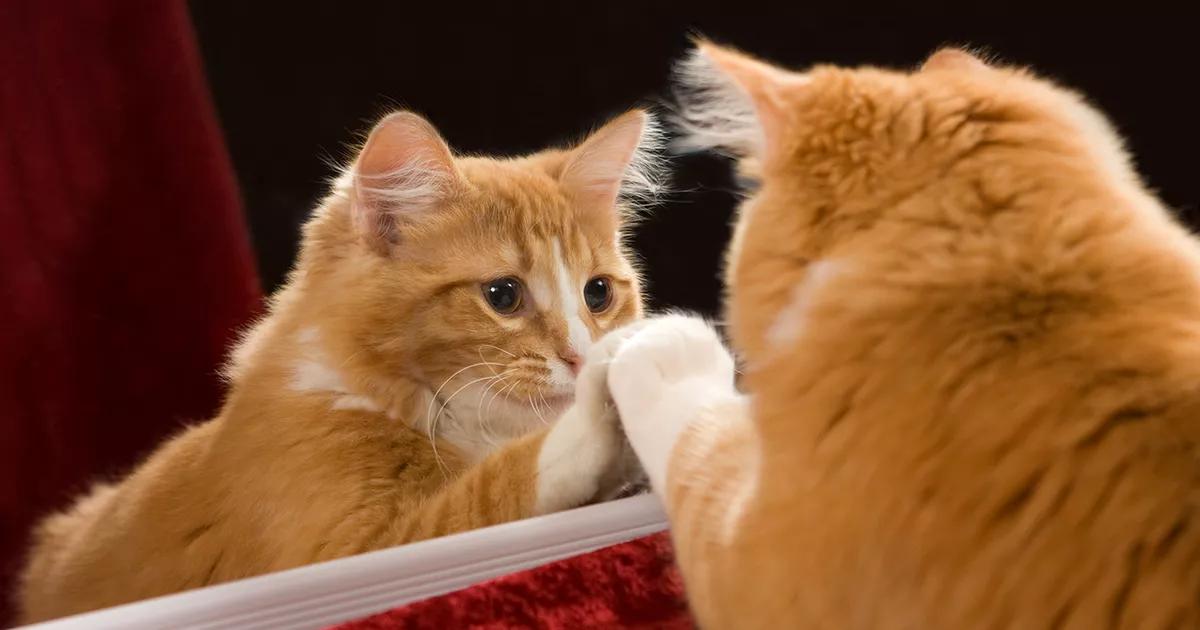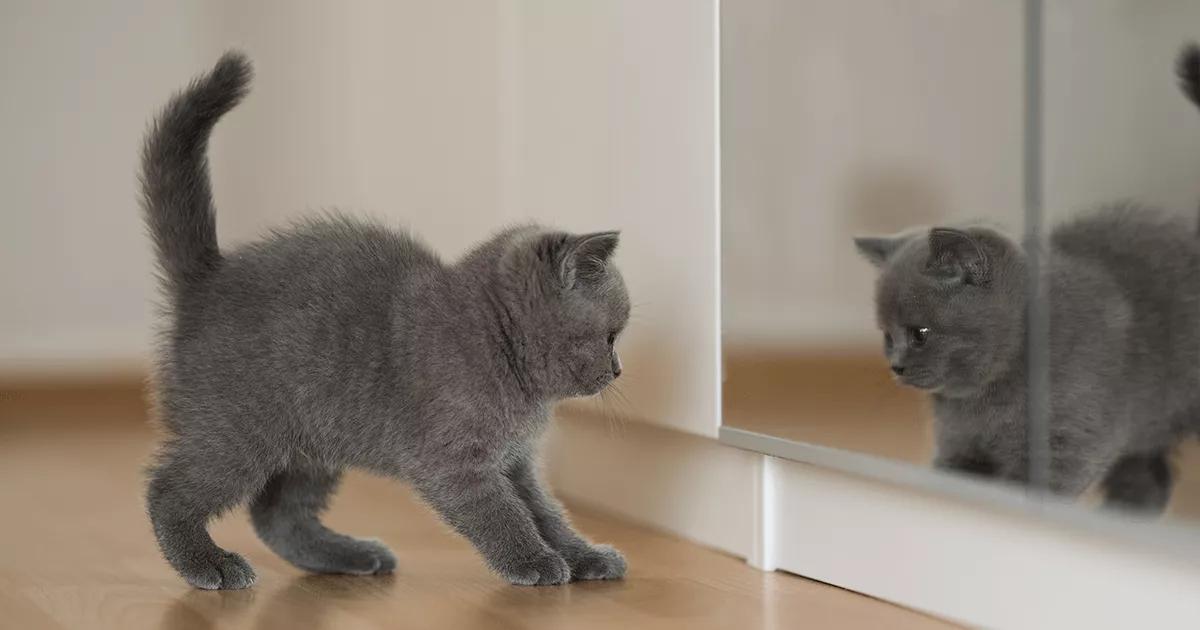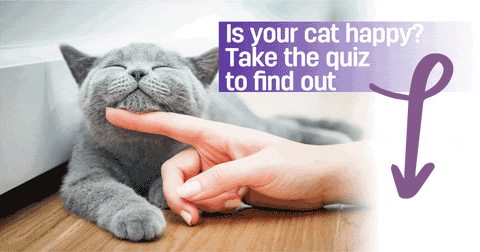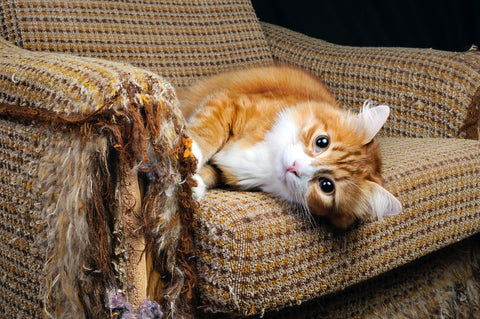
Do Cats Recognise Themselves in the Mirror
Have you caught your cat looking at themselves in the mirror and wondered what they were thinking? Do they know they are looking at themselves, or do they think it’s another cat?
It takes up to 18 months for a human baby to realise that they are seeing themselves in the mirror, and although animal self-recognition has been studied for many years, there is still no conclusive evidence that cats recognise who is looking straight back at them.
In 1970, the American psychologist Gordon Gallup Jr. developed the mirror test – sometimes called the mark test, mirror self-recognition (MSR) test, red spot technique, or rouge test. This is a behavioural technique attempting to determine whether an animal possesses the ability of visual self-recognition.
A red spot is placed on an animal in an area it can only see in the mirror, and the animal is then observed when it sees the reflection. Animals that touch the red spot (or try to remove it) are considered to recognise their altered image. Species such as dolphins, great apes and magpies were tested and were able to touch the red spot, while cats (and dogs) were not.
However, as cats mainly use scent and pheromones for communication, and only see blue and green colour combinations, perhaps they did not identify the red spot? Nor were they able to detect any recognisable scent on the mirror – is this why they failed the test!?
How do cats react when they see their reflection?
As long as they are not too close to the mirror, cats can see their reflection – though they may not realise they are looking at a mirror image of themselves. They rely on their whiskers to detect close-up objects, and anything closer than 25-30 cm is not clear to them visually. When faced with a reflective surface, there are a few ways your cat might react.
Curious
Cats are very good at detecting movement and, although they may not recognise themselves, they may catch a glance of a passing cat, and curiosity may get the better of them. You might find them dashing behind the mirror to look for the other cat they believe is invading their territory.
Aloof
Some cats will simply ignore the ‘other’ cat and walk away. They are fairly independent creatures and although some will endure another cat's presence – and even become buddies – others may prefer to live their own life. Therefore, when your cat spots their reflection in the mirror, they may turn around and carry on with their day, thinking it’s just another cat.
If you have a multi-cat household, they could well be used to seeing another cat in their home and, as long as they don’t have to share, it’s possible that their appearance in the mirror won’t disturb them.
Hostile
According to research, the most common response to a cat seeing their own reflection in a mirror seems to be hostility towards the ‘other’ cat.
Watch out for the signs, such as continued staring to display dominance, or dilated pupils and ears that lie flat to their head – likely indicating agitation. They may even sniff or paw at the mirror to try and gain more information.
Calming kitty nerves
If your cat is feeling unnerved by its reflection, move the mirror to a place where they cannot see a reflection, or cover it up.
Of course, your cat may catch their reflection in a window or another shiny surface and think that another feline is invading their territory. Closing the curtains or blinds, or covering over the shiny surface, will help.
FELIWAY Diffuser plugged into the room will also help your cat feel more comfortable and allay signs of anxiety.
The way cats react to their reflections has puzzled many animal experts, but there’s no denying just how amusing they can be. Cats may spend a lot of time preening and keeping themselves in tip-top condition, but one thing is fairly certain – they are not sitting admiring themselves!
